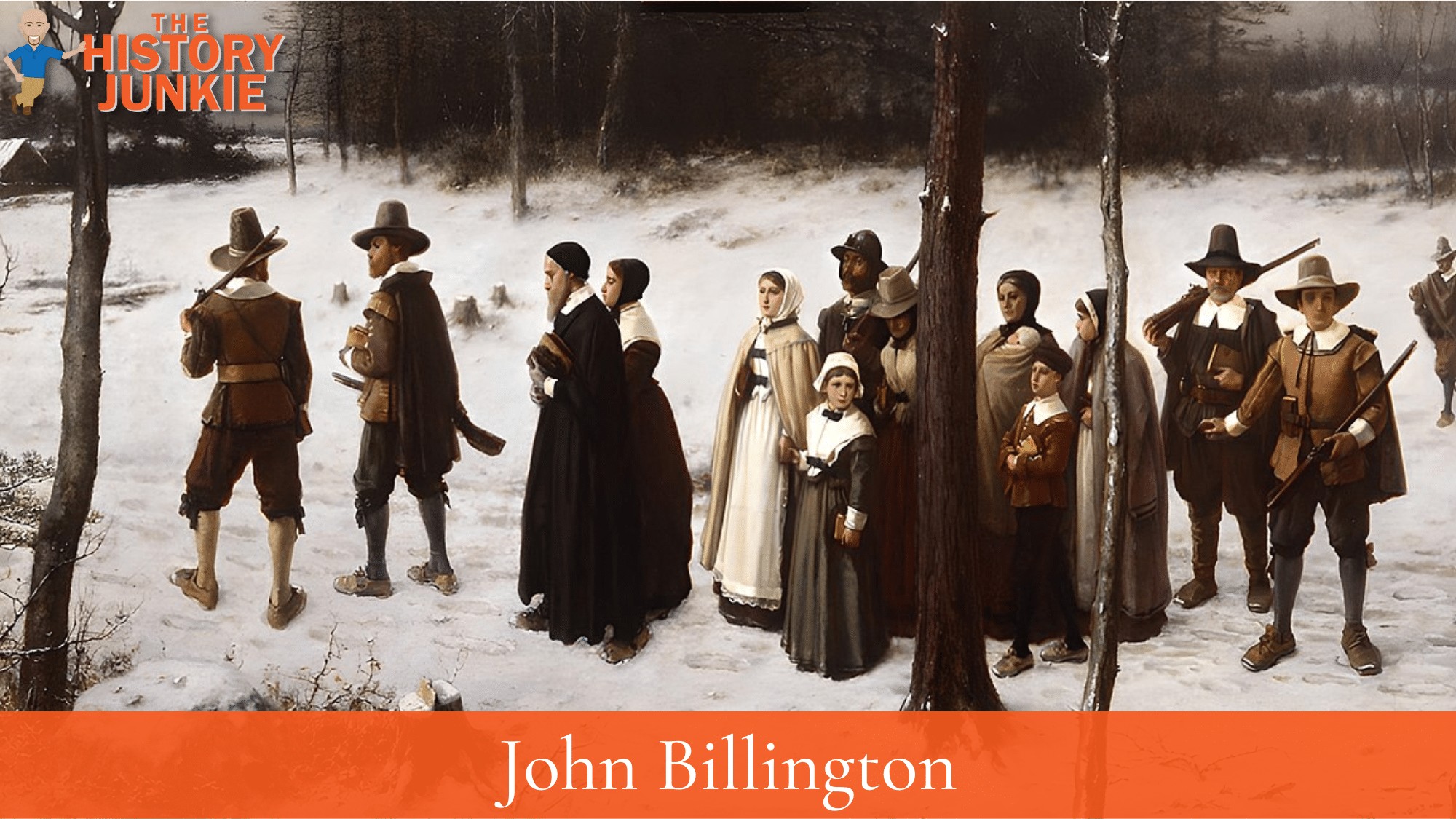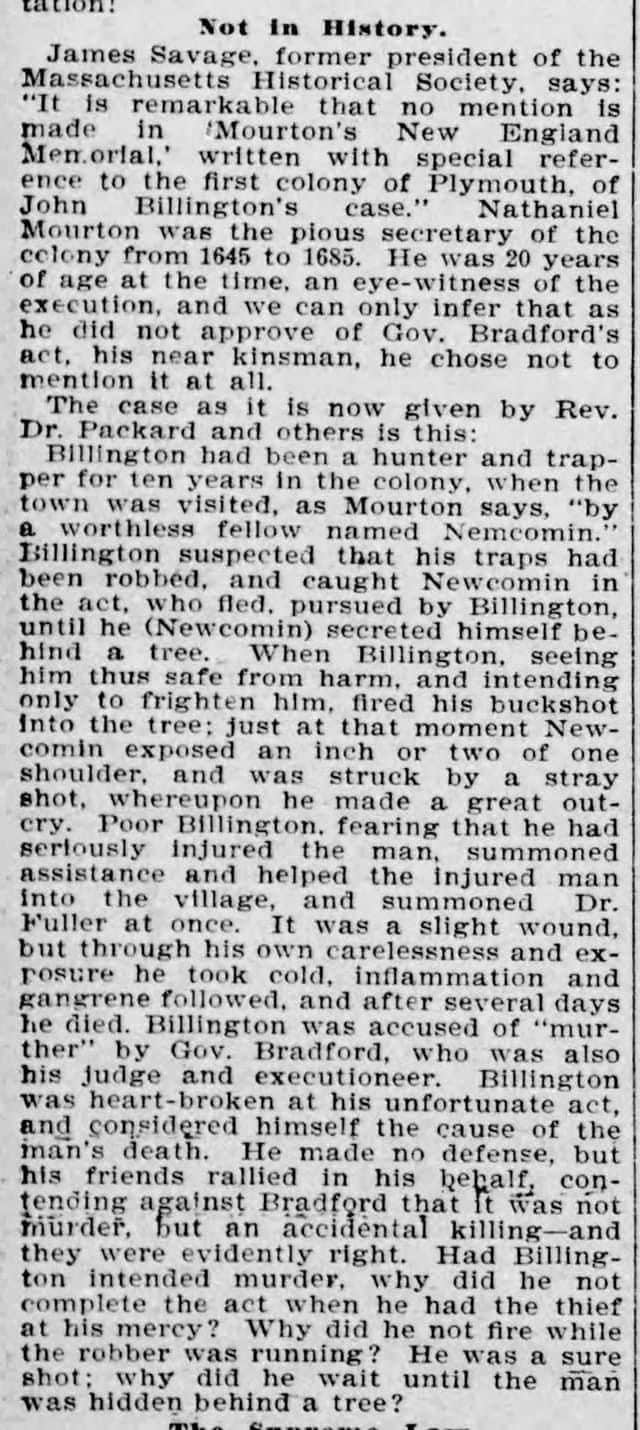John Billington was part of the Strangers on the Mayflower and was viewed as a troublemaker by many of the other Pilgrims.

William Bradford went so far as to call him a "vile" person and did not know how someone of his character could be aboard the ship. Bradford was not a fan and did not speak a kind word of him in his memoirs. He not only spoke terribly of John but also his children.
Jump to:
The first incident of note was in December 1620 when his son fired a gun near an open barrel of gunpowder and started a fire on board the Mayflower.
Although Bradford did not like him, there were some who enjoyed his company. Thomas Morton of Merrymount said, "He was beloved by many" when he referenced his death.
When they arrived in Plymouth, each of the passengers received land. John Billington received three acres, which meant that one of his sons was living with someone else, and his acre was received in their lot. In 1627, John, Hellen, and Francis Billington are listed together, while John Billington Jr. is listed with Richard Warren and George Soule.
Billington showed disdain for authority and seemed to cause conflict wherever he went. Aboard the Mayflower, he disrespected the captain, and within the colony, he continued to disrespect those in authority. This is probably why William Bradford, who became governor, did not like him.
When the Lyford and Oldham Revolt occurred, William Bradford wrote the following, which was published in his book Of Plymouth Plantation:
In 1624, John Billington was implicated in the Oldham-Lyford revolt against the Plymouth church and its leadership. Lyford was a preacher who disagreed with the religious teachings of Plymouth's leadership. Lyford and Oldham began having secret meetings and sent letters to England trying to undermine the leadership of the colonies. The plot was undone when these letters were intercepted by William Bradford. At his trial, Lyford tried to gain the open support of those who were with him and named among many others John Billington. However, Billington denied all involvement and pleaded ignorance and so escaped punishment for any involvement he may have had
10 years after the Mayflower landed at Plymouth Rock and some years after other colonists had arrived, Billington's trouble caught up to him when he shot and killed John Newcomen over hunting rights. He was found guilty and sentenced to hang. He would be the first Englishman executed in the New World.
There are two sides to the story, and unfortunately for Billington, it was Governor William Bradford who was his Judge and Executioner of him. An article said that it was an accidental shooting.

Family Overview
His parents are unknown, but it is believed he came from Lincolnshire, England. Outside of that, there is not much known of his origins.
He married his wife Elinore in 1604 in England, and the couple had two boys who survived to adulthood and survived the first winter. However, John Jr. would die before his father's execution.
His wife would remarry Gregory Armstrong, and his son Francis would watch over her for the rest of her life.
Family Tree Chart
Parents: Unknown
Spouse:
Elinor Billington (1582 - 1643) - After John's death, she remarried eight years later. As she grew older, her son Francis took care of her.
Children:
John Billington Jr. (1604 - 1627) - He died at 23 for unknown reasons. He is mentioned in his father's execution in 1630 as being dead and when the Pilgrims made peace with other Native American tribes.
Francis Billington (1606 - 1684) - He began as a troublemaker and almost blew the Mayflower up. He seemed to settle down as he got older. He married and had nine children with his wife.
Siblings: Unknown
